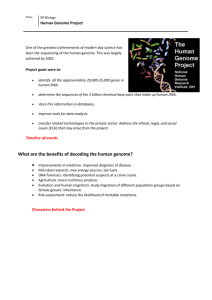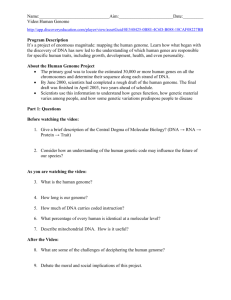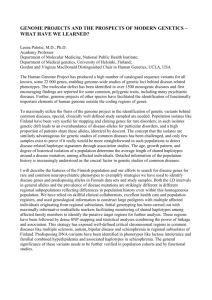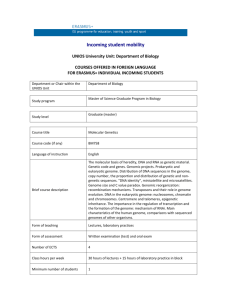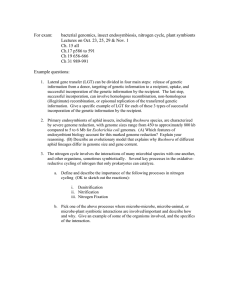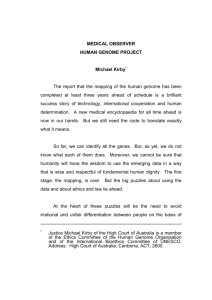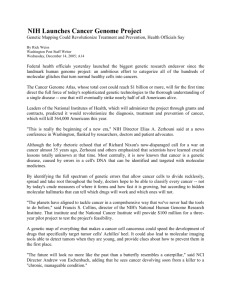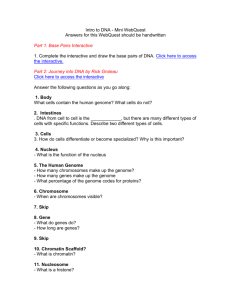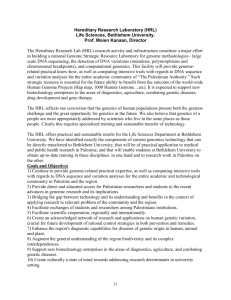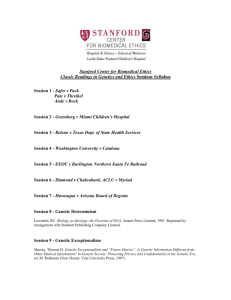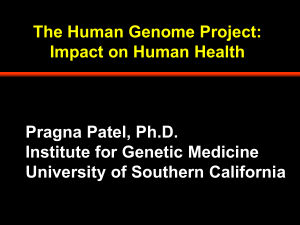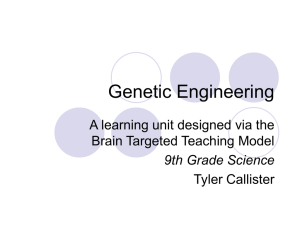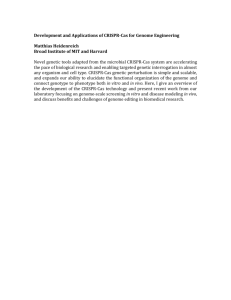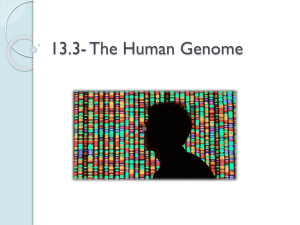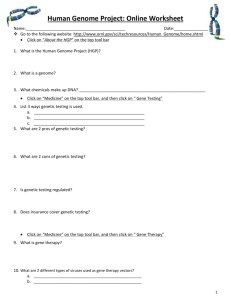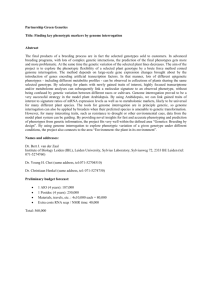Human Genome Project
advertisement
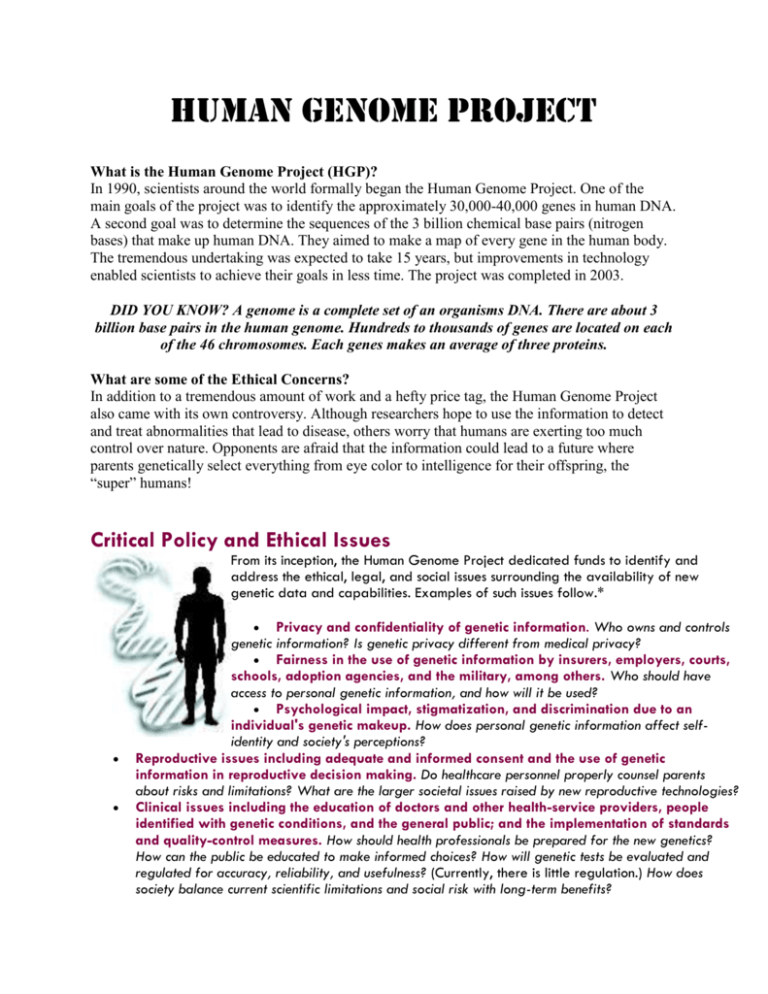
HUMAN GENOME PROJECT What is the Human Genome Project (HGP)? In 1990, scientists around the world formally began the Human Genome Project. One of the main goals of the project was to identify the approximately 30,000-40,000 genes in human DNA. A second goal was to determine the sequences of the 3 billion chemical base pairs (nitrogen bases) that make up human DNA. They aimed to make a map of every gene in the human body. The tremendous undertaking was expected to take 15 years, but improvements in technology enabled scientists to achieve their goals in less time. The project was completed in 2003. DID YOU KNOW? A genome is a complete set of an organisms DNA. There are about 3 billion base pairs in the human genome. Hundreds to thousands of genes are located on each of the 46 chromosomes. Each genes makes an average of three proteins. What are some of the Ethical Concerns? In addition to a tremendous amount of work and a hefty price tag, the Human Genome Project also came with its own controversy. Although researchers hope to use the information to detect and treat abnormalities that lead to disease, others worry that humans are exerting too much control over nature. Opponents are afraid that the information could lead to a future where parents genetically select everything from eye color to intelligence for their offspring, the “super” humans! Critical Policy and Ethical Issues From its inception, the Human Genome Project dedicated funds to identify and address the ethical, legal, and social issues surrounding the availability of new genetic data and capabilities. Examples of such issues follow.* Privacy and confidentiality of genetic information. Who owns and controls genetic information? Is genetic privacy different from medical privacy? Fairness in the use of genetic information by insurers, employers, courts, schools, adoption agencies, and the military, among others. Who should have access to personal genetic information, and how will it be used? Psychological impact, stigmatization, and discrimination due to an individual's genetic makeup. How does personal genetic information affect selfidentity and society's perceptions? Reproductive issues including adequate and informed consent and the use of genetic information in reproductive decision making. Do healthcare personnel properly counsel parents about risks and limitations? What are the larger societal issues raised by new reproductive technologies? Clinical issues including the education of doctors and other health-service providers, people identified with genetic conditions, and the general public; and the implementation of standards and quality-control measures. How should health professionals be prepared for the new genetics? How can the public be educated to make informed choices? How will genetic tests be evaluated and regulated for accuracy, reliability, and usefulness? (Currently, there is little regulation.) How does society balance current scientific limitations and social risk with long-term benefits?
